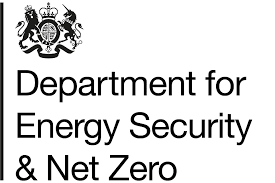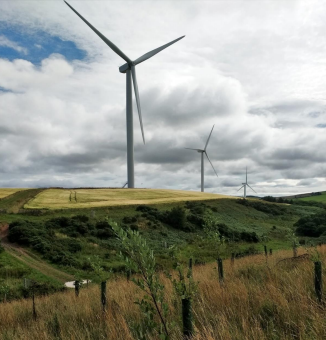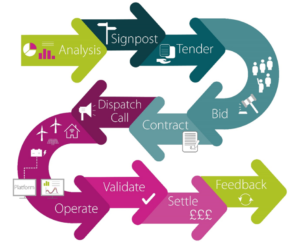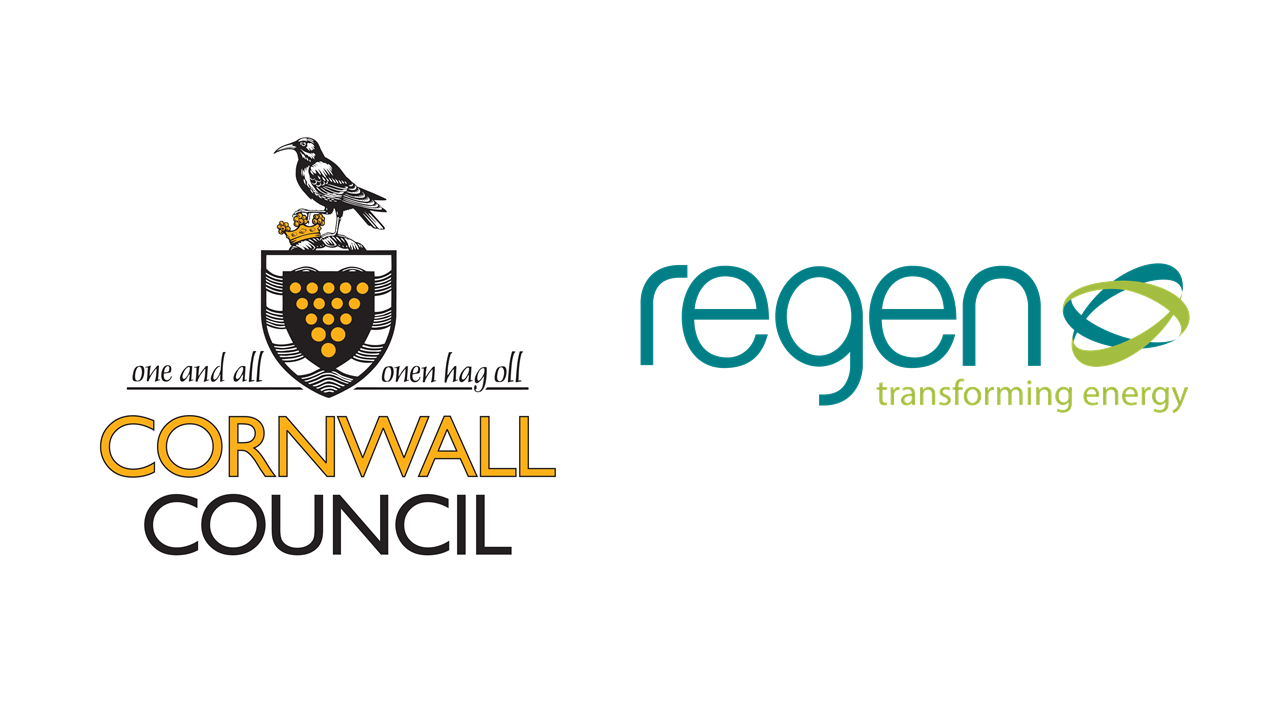Regen with LCP Delta to undertake an assessment of the role and benefits of long duration electricity storage (LDES) technologies on the GB power system.
Project duration: December 2022 – January 2024
Project lead: Ray Arrell, Associate Director
Regen with LCP Delta to undertake an assessment of the role and benefits of long duration electricity storage (LDES) technologies on the GB power system.
Project duration: December 2022 – January 2024
Project lead: Ray Arrell, Associate Director
Regen, in partnership with LCP Delta, undertook a study for DESNZ looking at the role and benefits of varying levels of long duration electricity storage in the GB power system out to 2050.
Regen’s primary role was to engage LDES technology developers (many of whom were ESN members), to understand the capabilities, technical characteristics and operational roles that LDES could bring to the GB power system, to support and validate the assumptions in LCP Delta’s systemic modelling.
The culmination of this engagement and analysis, was a summarising report, published by DESNZ in January 2024:
This report concluded that:
Regen published a joint article with LCP Delta when the report was launched in January 2024, summarising the analysis.
This work led to the publication of an industry consultation on the policy framework to enable investment in long duration electricity storage, specifically including the introduction of a ‘cap and floor’ commercial mechanism: https://www.gov.uk/government/consultations/long-duration-electricity-storage-proposals-to-enable-investment


For more information on this project, please contact Ray Arrell.
Regen is working with UK Power Networks to assess the potential impact of battery storage development on their distribution networks in the Eastern, South Eastern and London licence areas.
Project duration: July – December 2023
Project lead: Ray Arrell, Head of Future Energy Systems
The commercial battery storage sector has significantly and rapidly grown over the past 8 years. From a handful of early-adopters seeking to participate in National Grid ESO’s Enhanced Frequency Response auctions in 2016/17, to the 10s of GW of prospective projects that are currently seeking grid connections across multiple voltage tiers across all areas of the UK.
Whilst a growing number of operational sites are now providing a range of services to the UK electricity system, the true scale of development and impact of battery storage capacity on our electricity networks, remains an area that DNOs and the transmission operators are looking to understand in more detail.
Off the back of Regen’s extensive experience in assessing battery pipelines through our DFES analysis and the management of the Electricity Storage Network, UK Power Networks (UKPN) has commissioned Regen to complete a battery storage impact assessment for their distribution network licence areas in the East and South East of England (including central London).

This impact assessment will include:
Regen/the ESN would welcome views from the battery storage sector (and beyond) to feed in to this impact assessment.
For more information on this project, please contact Ray Arrell.
The UK has set out clear ambitions for a net zero energy system. Critical to this challenge is ensuring that new generation and low carbon technology can connect to the grid quickly and easily, and at the capacity and volume needed to meet net zero.
In response to this challenge, Regen and the Electricity Storage Network (ESN) have set up a working group for members which provides an opportunity to discuss issues impacting access to the electricity grid, engaging closely with the network operators.
Topics covered by the group include:
If you are a member of Regen or the ESN and would like to join this working group, please contact Estelle (elimon@regen.co.uk) to express your interest.
If you are not a member but are interested in finding out more about membership, please find more information here and contact Hannah (hstanley@regen.co.uk) or Estelle (elimon@regen.co.uk) to discuss.


Regen was commissioned by SP Energy Networks to undertake a high level economic evaluation of the Active Network Management scheme at Dunbar GSP, which had run from 2015 to 2020.
Project duration: July 2021 – Oct 2021

Between 2012 and 2016, SP Energy networks and partners implemented an Active Network Management (ANM) scheme on the Dunbar Grid Supply Point (GSP) to enable four new projects, totalling 50MW of generation, to connect to an export constrained network, and one existing 48 MW windfarm to upgrade from its previous inter-trip constrained connection to an ANM flexible connection.
Regen was commissioned by SP Energy Networks to evaluate what the impact of the ANM scheme had been on the local economy and to explore how ANM could be used to greater effect in our networks as they evolve.
The implementation of ANM at Dunbar led to some clear economic and carbon benefits including:
 “Our evaluation clearly shows that ANM is a valuable tool to allow distribution networks to accelerate the deployment of renewable generation in capacity constrained areas, and to unlock the associated carbon savings and economic benefits of these projects. The Dunbar ANM scheme has also made a significant contribution to the continued innovation and development of ANM technologies and processes. ANM based approaches, working alongside other sources of flexibility, could now play an important role to achieve net zero if networks are enabled to take a more proactive role to make strategic network investment.”
“Our evaluation clearly shows that ANM is a valuable tool to allow distribution networks to accelerate the deployment of renewable generation in capacity constrained areas, and to unlock the associated carbon savings and economic benefits of these projects. The Dunbar ANM scheme has also made a significant contribution to the continued innovation and development of ANM technologies and processes. ANM based approaches, working alongside other sources of flexibility, could now play an important role to achieve net zero if networks are enabled to take a more proactive role to make strategic network investment.”
Tim Crook, project manager and report author, Regen
 “Scotland is currently hosting one of the most important climate summits in recent years. It has given us a stage to show all the work we have done already to move towards net zero and show our commitment to reaching our climate change targets at the pace and scale truly needed.
“Scotland is currently hosting one of the most important climate summits in recent years. It has given us a stage to show all the work we have done already to move towards net zero and show our commitment to reaching our climate change targets at the pace and scale truly needed.
Our electricity networks are at the heart of this climate ambition; they support the growth of renewables as well as the increase of electric heating and transport. It’s our job to ensure that we are constantly innovating and investing in our network to make sure it stands ready to support the energy transition.
Active Network Management has proved to be an incredibly useful technology to use ahead of our planned multi-billion pound investment in our network to keep increasing the renewable generation Scotland needs. Not only that, but we are proud to be able to show that it can bring significant socio-economic benefits to both the country and directly to the communities it operates in.”
Scott Mathieson, network planning and regulation director, SP Energy Networks

“We were pleased to work with SP Energy networks and their customers in the Dunbar and Berwick areas to deploy our Active Network Management technology to solve the grid capacity challenges there. It is, therefore, very pleasing to see this evaluation of the many different benefits by Regen.
“Network flexibility in general, but this ANM approach to flexible generator connections in particular, provides the foundation for quicker and less expensive development of clean energy. Speed, scale, stakeholder inclusivity and cost-effectiveness are all clearly important in the context of the enormous climate challenge we all now face.
“This Dunbar ANM project, and the evidence of positive impact now captured in this report, point the way forward to massive scale clean energy development in accelerated timeframes with benefits to a wide set of stakeholders. We are also pleased to be working with SP Energy Networks to roll-out this approach to other network areas and also use the same underlying technology to solve other network challenges.”
Euan Davidson, chief technology officer, and the force behind the application of Smarter Grid Solutions ANM in this project
Project duration:
OpenDSR is a government funded project looking to demonstrate a concept for domestic demand side response (DSR) and support the development of a business model for the Energy Community Aggregator Service (ECAS), a community owned DSR aggregator and energy service provider.
The OpenDSR project aims to reduce cost and barriers to domestic participation in demand side response (DSR), achieving this through:
The project is funded by the Department for Business, Energy and Industrial Strategy (BEIS) Innovative Domestic DSR Competition – Phase 2. Regen is a project partner alongside Carbon Co-op, Megni OpenEnergyMonitor, Great Places and EV Parts.
The project will test and demonstrate the potential for multiple household energy loads to be controlled remotely to reduce demand at particular times, for example at times of peak electricity demand on either the local electricity network or the national electricity grid. Smart electric vehicle (EV) chargers will be installed in 60 Carbon Co-op members’ homes, and immersion heaters, solar panels and solar diverters will be installed in 40 social households belonging to Great Places in Manchester. Carbon Co-op will aggregate this portfolio of domestic distributed energy resources (DERs) and have an agreement with that householder to be able to:
The project builds on the ECAS and OpenDSR Phase 1 feasibility studies.
Energy Communities Aggregator Service (ECAS) – Local Flexibility Markets (2018)
OpenDSR Phase 1 Feasibility Report

To find out more about Open DSR or community energy more generally, contact Ky Hoare at khoare@regen.co.uk.
We run regular engagement events for communities that you can view here and we have a special rate for community energy organisations who would like to be members of Regen which can be found here.
Project duration: June 2018 to September 2019.
The UK’s energy system is undergoing seismic changes. The old structure of large, strategically placed power stations and an electricity network that simply delivers power to customers is gone. The landscape is one of shifting demand, greater decentralisation and commitments to reduce or eliminate the dirtiest forms of electricity generation.

Power to Participate was a year long project aimed at addressing the barriers faced by community energy organisations when exploring new markets such as the provision flexibility services. The project was funded by Friends Provident Foundation.
Communities have been playing a pivotal role in this transition to a new system, proving that ideas, innovation and investment can and perhaps should come from the customers that end up using the power.
But community energy as a movement risks being left behind. The rapid changes in technology that impact how the UK’s energy system operates and is balanced are forcing a rewrite of the policies and regulations that govern it. Unless communities can articulate the value of the role they can play in the new world, they may not be able to play at all.
Regen was awarded funding from the Friends Provident Foundation to work with community energy groups and distribution network operators to understand why engagement with new flexibility opportunities has been so low and how it could be improved.
You can read our launch blog here and the final report here, both launched in September 2019.
Community energy organisations are widely expected to play a significant role in our future energy system.
Throughout the last decade, community groups have helped decarbonise and decentralise the electricity system, bringing investment and engagement from their local areas. But the system is experiencing rapid change.
Parts of the electricity network are now seeing constraints, preventing the connection of more low carbon generation and struggling to cope with shifting patterns of demand as numbers of heat pumps and electric vehicles grows. To combat these constraints, all the UK’s Distribution System Operators (DSOs) are buying ‘flexibility services’: i.e. the ability for generators or large demand customers to turn their asset up or down if needed. It was widely anticipated that community energy organisations, hungry for new opportunities after the reduction in Feed in Tariff, would eagerly participate in these competitions for flex and potentially go on to explore opportunities at the system balancing level.
However, few community energy organisations are in a position to participate in these flexibility markets, let alone national balancing markets such as those run by National Grid ESO.
Throughout 2018 and 2019, Regen has engaged with community energy organisations, Ofgem, government and the Distribution System Operators (DSOs) to understand why communities are not participating in the emergent flexibility markets.
We brought together these key stakeholders at a ‘Hackathon’ style event in November 2018 and established some key barriers to participation and how they should be addressed. This has resulted in a report or specification that outlines 13 steps that must be taken to ‘level the playing field’ and enable participation from a wider supply chain.
If you are interested in finding out more about our work and how we support community energy, please contact Jodie Giles jgiles@regen.co.uk.
We run regular engagement events for communities that you can view here and we have a special rate for community energy organisations who would like to be members of Regen which can be found here.
Project duration: April 2018 to November 2018
Cornwall Council is at the forefront of the energy transition and is now looking at innovative approaches to further develop its energy portfolio and to help facilitate economic growth. On behalf of Cornwall Council, Regen is supporting the development of an energy storage solution at the Aerohub site in Newquay, Cornwall (UK). This location offers several opportunities and options for the development of innovative storage solutions, co-located with solar PV generation and demand customers at the Aerohub. An initial high-level feasibility study showed that there was value from increasing onsite usage of renewable generation and avoiding
peak prices. However, it also showed that additional revenue and/or cost reduction would be needed to enable a viable business in the current market. Following this Cornwall Council was interested in investigating the technical options available in more detail.
Regen drafted and circulated the prospectus and expression of interest, that outlined an exciting opportunity to work with an innovative Council to develop an energy storage system.
We received an excellent response from the sector by using our knowledge of active companies and existing contact lists. A solar power portal article helped publicise the project to a wider sector audience and a number of companies asked for further information during the process, which was provided if available and approved. We received interest from a total of 23 companies.

Following the prospectus and EoI, further modelling work was undertaken to identify the viability of energy storage at the Aerohub site in August 2019. To accurately assess potential savings, the model uses the latest electricity tariffs alongside half-hourly historical generation and grid import/export data (2018/19) from Kernow Solar park and Newquay Aerohub respectively. The modelling looked at a lithium-ion and redox flow battery options.
We are continuing to work in partnership with Cornwall Council to confirm suitable next steps and the process for developing the potential energy storage project at the site in question.
If you are interested in finding out more about this work, please contact Olly Frankland ofrankland@regen.co.uk.
Project duration: April 2016 to March 2021
SET-UP aims to improve energy performance in the partner regions with enhanced policies on smart grids.
Regen is an advisory partner on a European funded project to enhance smart grid policies in 6 partner regions with a specific focus on solutions to 3 main challenges to smart grid deployment:
This is funded by INTERREG IVC European Regional Development Fund.
Further details are available on the project website here.
Regen is an advisory partner on the project, providing briefings on the latest policy changes, giving individual support to project partners on specialist subjects, presenting at project meetings, and communicating best practice in smart grids across the EU.
Recent work has included:

If you are interested in finding out more about this work, please contact Olly Frankland ofrankland@regen.co.uk.
Project duration: May 2018 – August 2018
Regen, partnering with Carbon Coop and Community Energy Scotland, worked on one of the shortlisted BEIS Flexibility Markets Feasibility Study Competition funded research projects. This project assessed the feasibility of a service which aggregates flexible loads at the household/community level, to participate in local and national flexibility markets.
![]()

Regen’s work within this project was to assess the current DSO led flexibility market trials and expressions of interest, as well as the technical, regulatory and policy barriers to enabling smaller participants to enter these markets.
The main aims of the wider project were:
• To develop a model to estimate the value of different kinds of potential domestic flexibility
to DSOs and the SO in different parts of the UK;
• To specify a Technical Aggregator Platform (TAP) for the system and assess the development,
material, operational and other costs for this system to function for a range of potential
flexibility assets;
• To examine the regulatory requirements and legal barriers for the provision of community
aggregator services;
• Outline a local demonstrator project that would take the results of the feasibility study
from drawing board to market.
Download and read our guide to local flexibility markets here:
Project lead: Ray Arrell, Senior Project Manager
Off the back of Regen’s Energy Storage – Towards a Commercial Model paper, as part of our ‘pathways to parity’ series we developed a follow-up publication that focuses on the business model of co-locating storage with generation and demand.
The paper looked at:
We are also considering the dynamic of ‘behind the meter’ prosumers into the co-location model, i.e. how the co-location of storage, generation and demand may be an optimum scenario to create most benefit and flexibility from storage.
We partnered with Green Hedge, TLT LLP, Triodos Bank and Vattenfall on this publication, which was launched in November 2017.

Download the paper here: Energy Storage: The Next Wave
Led by: Ray Arrell – Senior Project Manager
Contact: rarrell@regen.co.uk
A paper on “Network Charging for a Flexible Future” calling for a broad ranging review of how we charge for the grid, and setting out our views on principles such a review should focus on.
Network Charging For Flexible Future
Published: September 2016
Project duration: March – May 2018
Regen, partnering with energy software company Piclo (formerly Open Utility), published a series of blogs about the development of local flexibility markets.

These blogs can be accessed below:
Part 1 – Local flexibility trials
Part 2 – The benefits of local flexibility for DNOs
Part 3 – The role of a local flexibility market
Part 4 – How a local flexibility trading platform might work
Part 5 – What does local flexibility mean for you?
![[RESIZED] Open Utility Graphic 3 Role Of A Local Flexibility Market 02](https://www.regen.co.uk/wp-content/uploads/RESIZED-Open-Utility-Graphic-3-Role-of-a-local-flexibility-market-02.jpg)
Project lead: Ray Arrell, Senior Project Manager